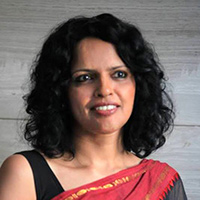ThePrint Opinion Mailer  | Saturday 15 October 2022 | In My Opinion By Rama Lakshmi, Opinion and Features Editor |  | |
| How long do you give Indian secularism? This is a question Vir Sanghvi asks himself. Five years ago, his answer would have been that there was no time limit on our secularism. Today, he wrote, he is less and less hopeful about its future.
Writing on Mulayam Singh Yadav’s death, Yogendra Yadav said the youth don’t think much about the socialist political tradition of India. They face ‘Hindutva’ all the time. They hear about liberals, Leftists, Naxalites, feminists, Gandhians and environmentalists. But ask them about socialists, and you would draw a blank.
What is Xi Jinping style of diplomacy? It involves China’s revision to the international order to bring back an old idea of State sovereignty and weaken the ‘values based’ international order, wrote Aadil Brar.
For too long, Indian urban elite have been viewing culture, tradition and religion as nothing more than the “opium of the people”. Referring to the widespread news coverage of the Prime Minister’s event at Ujjain, one veteran journalist even commented sarcastically that some TV channels sold a lot of opium today. Unfortunately, the ruling elites never understood the economic potential of culture, wrote Seshadri Chari, and highlighted the building of infrastructure around temple towns. India’s religious economy is worth 3.02 crore amounting to nearly 2.32 percent of India’s GDP. He participated in a conference on cultural economy in Gandhinagar this week.
Two really sharp articles on the Supreme Court delved into the representation debate.
Former Chief Justice of India, Justice N.V. Ramana recently bemoaned the lack of diversity in the appointments of judges. Dilip Mandal wrote that during his own tenure, 80% judges appointed to the high courts were upper-caste Hindu men. Arvind Kumar wrote that the collegium routinely ignores the lack of representation of the high courts of Patna, Telangana, Odisha, and Andhra Pradesh. The high courts of Delhi, Mumbai, Gujarat, and Karnataka hold greater representation.
Do also read our new series on a mini-revolution underway in small towns. More and more women are becoming judges. Jyoti Yadav reports on this recent phenomenon. In the first report, she wrote about how two women judges were stalked and harassed by lawyers.
| | | | I don’t want to belabour Nazi Germany parallels because, so far at least, they do not fit. But there are parallels with the Taliban and Islamism. Read more... | | | | | | | You can’t take on BJP’s aggressive nationalism with an abstract internationalism; positive nationalism of Indian socialists can be the effective antidote. Read more... | | | | | | | China doesn’t want to interfere in the affairs of other countries while playing a central role in shaping a new world order. It's all about 'Xiplomacy'. Read more... | | | | | | | There's a flaw in CJI U.U. Lalit's recommendations for Supreme Court judges. It ignores some high courts, women, and ST judges. Read more... | | | | | | | Former CJI Ramana recently spoke about the absence of mechanism to ensure diversity in appointment of judges. He didn’t fix it in his tenure either. Read more... | | | | | | | For far too long, an influential section of Indian society has regarded culture, tradition and religion as 'opium of the people'. Modi govt is changing the view. Read more... | | | | | More women may be making their presence felt in the judiciary, police and administrative services, but their robes, badges and uniforms don’t deter the rampant sexism. Read more... | | | | | | | | | Read more of ThePrintOpinion here. You are receiving this because you are a reader of ThePrint and posted a comment or signed up to receive this newsletter. We appreciate your feedback. | | | | |
